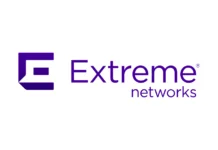The European telecom sector is undergoing a profound shift propelled by the newly established e-invoicing regulations, a key component of the European Union’s comprehensive digitalization drive. These regulations are remolding the operational landscape for telecom enterprises, ushering in a complex interplay of obstacles and advantages.
The e-invoicing directives were instituted to standardize the electronic invoicing framework across EU member states, facilitating cross-border trade for businesses. Mandating electronic issuance and processing of invoices, the regulations ensure transaction traceability and transparency. This initiative aligns with the EU’s overarching strategy of forging a unified digital marketplace that fosters innovation and economic expansion. For telecom, these regulations carry substantial ramifications. Given the intricate billing structures intrinsic to telecom services, companies in this sector are now compelled to recalibrate their systems to conform to the fresh mandates. This involves not just technological modifications, but also a fundamental overhaul of business procedures and workflows.
On one hand, this transition presents formidable challenges. Telecom entities must allocate resources toward new technologies and system overhauls, conduct workforce training, and potentially restructure their operational framework. Furthermore, they must uphold robust cybersecurity measures, given the sensitive nature of data processing in e-invoicing.
However, this shift towards e-invoicing also ushers in numerous advantages. Chief among these is the potential for substantial cost reductions. Electronic invoicing obviates the need for paper-based invoices, which are not only expensive but also susceptible to errors and delays. It streamlines the invoicing procedure, rendering it swifter and more efficient, ultimately enhancing customer satisfaction as invoices are promptly delivered and comprehensible.
Furthermore, e-invoicing equips telecom companies with valuable data reservoirs. By scrutinizing invoice data, firms can unearth insights into customer behaviors and preferences, informing their marketing and sales strategies. Such data can also pinpoint operational inefficiencies, enabling proactive remediation. The migration towards e-invoicing has broader ramifications for the telecom domain. The industry is poised to intensify its digitalization, potentially heightening competition. Swift and effective adaptation to the new regulations will confer a competitive edge, enabling companies to provide superior services at reduced costs. This could potentially catalyze a reconfiguration within the industry, as some entities seize market share from their peers.























